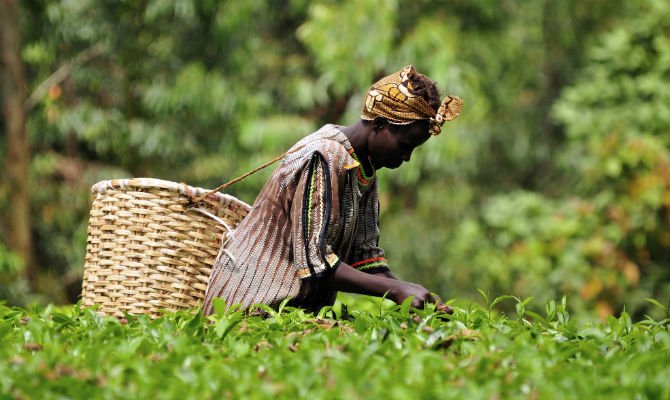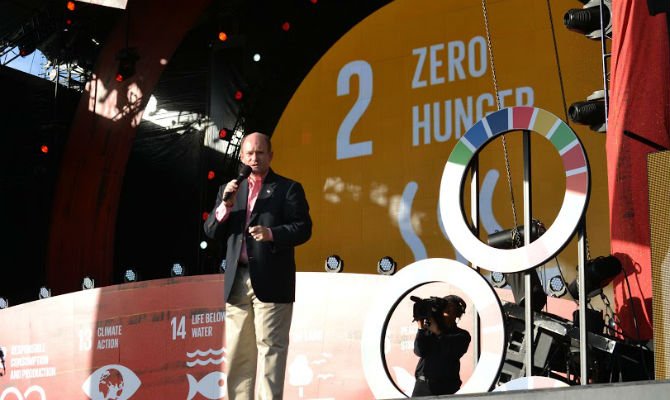WHAT'S THE ISSUE?
Lack of food is often the first thing that comes to mind when talking about poverty, because eating is a matter of survival. When people do not get adequate nutrition, they often suffer from poor health, low energy levels, and reduced ability to study or work. This all perpetuates the poverty cycle. If a nation is under-nourished, its economic productivity will be impacted.
Symptoms of undernourishment in a child include being underweight and/or stunted. In Malawi 16% of children are underweight, and more than 40% of children are significantly below the World Health Organization’s median height.
One of the ways we can address the issue of under-nourishment is by improving agriculture so that more food is produced. In a number of countries women cannot run a business or own land, including farms and farmland. While improving farming and agricultural practises is part of the solution, food aid is needed to cover the shortfall, particularly when disasters strike such as floods, drought, or war.

HOW DID GLOBAL CITIZENS RESPOND?
Global citizens took action through the Action Journeys on GlobalCitizen.org. Nearly 44,000 petition signatures called on the US government to support international food aid programs that are more efficient and effective, and almost 35,000 global citizens picked up their phones and called US Senators asking them to support the Food for Peace Reform Act.
WHAT'S THE IMPACT?
At Global Citizen Festival 2015, United States Senator Chris Coons (D-DE) called for the passage of the Food for Peace Reform Act, stating, “We need a new approach to food aid that reaches more people faster in times of dire need.” In the past, many countries in Africa weren’t able to grow enough food, so the US Government shipped food across the sea. Now African farmers are using better seeds and growing practices, and it is more efficient for the US to buy and distribute food within Africa than to send American food over. Chairman of the Senate Foreign Relations Committee, Senator Bob Corker (R-Tenn.) says “The Food for Peace Reform Act will help us deliver lifesaving food to those in need more quickly, at a lower cost, reaching up to nine million more suffering people.” Also in support of this Act is Chairman of the House Committee on Foreign Affairs, Ed Royce (R-CA) who believes “making food aid more efficient is essential and overdue.”

In addition to the improvements in seeds and growing practices in African countries, governments are changing laws to improve nutrition and food access. Efforts in Rwanda are reducing barriers for female farmers, which will enable more food to be produced. Rwanda’s President Paul Kagame announced at Global Citizen Festival via video message, “In Rwanda we have omitted laws that prevented women from owning and inheriting land. Millions of computerized land titles have since been issued, the majority to women.”
Malawi’s high rate of undernourished and stunted children has been gradually coming down, but the government doesn’t want to wait. Through the Malabo Declaration, Malawi, along with other African countries, adopted a series of agriculture goals that will improve the health and nutrition of its people. Via video message at Global Citizen Festival, Malawi’s Vice President, Saulos Chilima made the following commitment:
“We will not only achieve food and nutrition security for citizens, but also reduce the rates of stunting to 10% and underweight to 5% by 2024.”
WHAT HAPPENS NEXT?
Officials from 193 governments agreed to the Global Goals and the target of achieving them by 2030. Global Goal 2 specifically aims to address hunger, food security, nutrition and sustainable agriculture.
While governments around the world continue to make changes to outdated laws, the Global Poverty Project will continue to work with Senator Coons and other Senators and Congresspeople advocating for passage of the Food for Peace Reform Act.
This piece was contributed by Sarah Wood, Global Impact Manager at Global Poverty Project.